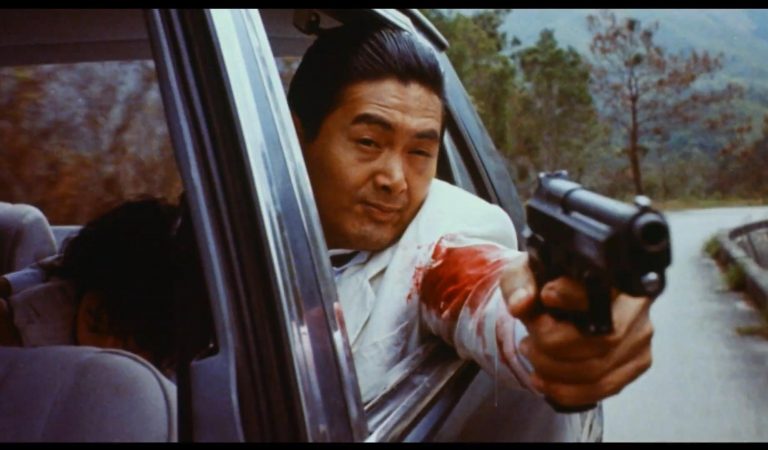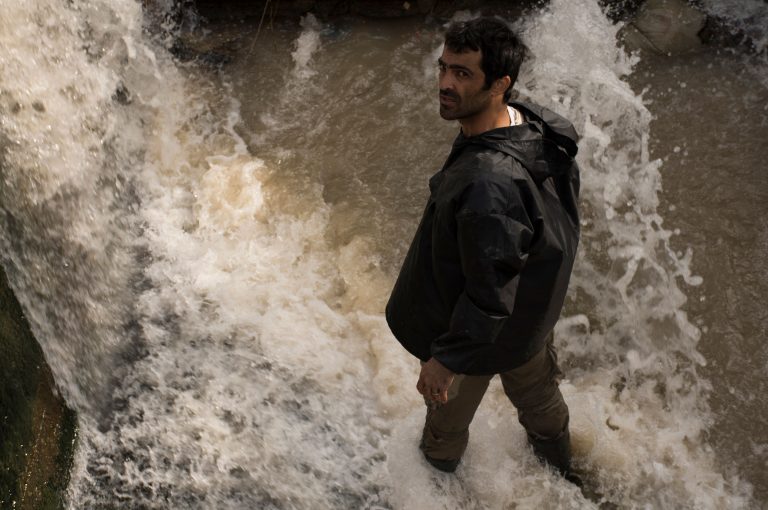Movies about hijacked planes or runaway trains are nothing new. The concept of a speeding vehicle wired with a bomb that detonates if it slows down immediately brings to mind Speed (1994) or the original Japanese thriller The Bullet Train (1975). Bullet Train Explosion (2025) is no exception to this familiar template. Yet, director Shinji Higuchi makes an effort to ground the story in realism, crafting a tense, drill-like simulation—with logical possibilities that could only happen, well, in movies.
The film follows the East Japan Railway Company’s bullet train, Hayabusa 60, as it speeds from Shin-Aomori to Tokyo. Somewhere along the four-to-five-hour journey, a bomb is secretly planted onboard without the crew’s knowledge. If the train’s speed drops below 100 km/h, the bomb will detonate. The perpetrator demands a ransom of 100 billion yen. How the bomb is handled—and how the people aboard a train running over 260 km/h survive—is the premise of Netflix’s latest Japanese thriller, tinged with a healthy dose of corporate propaganda.
Also, Read – Bullet Train Explosion (Shinkansen Daibakuha, 2025) Ending Explained
Takaichi (Tsuyoshi Kusanagi) is the head conductor of Hayabusa 60—a man of deep principles, experience, and quiet professionalism. He loves his job not out of ambition, but pure passion for the train itself. In an early scene, he gives a tour to schoolchildren, delivering a philosophical answer when asked why he chose to become a conductor instead of a driver. It leaves the children puzzled, but gives the audience a glimpse into the film’s deeper emotional core.
In contrast, his assistant Keiji Fujii (Kanata Hosoda) is young, ambitious, and eager, but less seasoned. Rounding out the key crew are Matsumoto (Non), the most cautious and paranoid driver imaginable, and a female conductor. Matsumoto spends much of the runtime glued to the driver’s seat, hands tense over the accelerator and brake, her face a mask of mounting panic.
Beyond the crew, the film introduces a colorful array of passengers to keep the human drama alive: a scandal-ridden politician looking to exploit the crisis; a high school teacher traveling with her students; an unemployed millionaire-turned-social media influencer launching a crowdfunding campaign; a suicidal man who rediscovers his will to live; and an aged electrician who unexpectedly finds redemption. The film gives most of these characters just enough development to make their arcs feel earned, keeping the drama lively and engaging.
While Bullet Train Explosion critiques politicians and bureaucracy, it stops short of true cynicism. Instead, it offers a glowing tribute to the East Japan Railway Company. Watching the film feels less like a traditional thriller and more like witnessing a heartfelt romance between the filmmaker and the corporation. The admiration for the company’s ethics and professionalism is impossible to miss.
The rescue strategies deployed by railway officials are theatrically cool—and, to some extent, even practically feasible. But considering that everything unfolds within four or five hours, some of the logistics strain believability. The precision, communication, and physical execution of certain rescue operations feel more like an optimistic daydream than reality.
The real antagonist is revealed about an hour before the film’s end. The hints are scattered early on, but when the reveal comes, it bundles in a subplot that slightly derails the film’s tight pacing. The second half, while still gripping, starts to feel stretched.
Although the film claims there are over 300 passengers aboard, it smartly narrows its focus to a handful of characters, keeping the narrative intimate. However, the tone occasionally wavers between taut thriller and sentimental drama. Characters sometimes pause to deliver moral speeches about duty and professionalism—even when survival should be the sole focus. It’s not necessarily a flaw, but it softens the film’s thriller edge.
Also, Read – 9 Films to watch if you Like Bullet Train (2022)
The opening credit scene immediately sets the tone, styled in a way that’s reminiscent of the Mission Impossible films—a high-octane montage offering glimpses of what’s to come. It’s an energetic warm-up that fits the relentless pace that follows. The camerawork is seamless, the musical score heightens tension without overwhelming it, and while a few visual effects don’t fully impress, they’re never distracting. Thanks to Netflix’s involvement, the film has a slightly glossier, brighter look than a traditional theatrical thriller might, but the production design remains strong.
In the end, Bullet Train Explosion is exactly what its title promises—and a little more. It’s a ticking-clock thriller, a heartfelt tribute to Japanese work ethic, and a subtle promotional piece for East Japan Railway Company all rolled into one. It doesn’t reinvent the genre, but for those willing to hop aboard for a two-hour ride packed with tension and sentimentality, it delivers a satisfying, if slightly overextended, experience.









